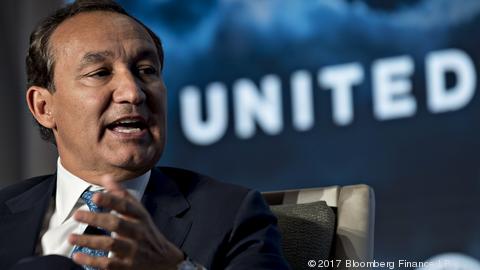Article originally published in the Chicago Business Journal on April 13, 2017
During the past week, United Airlines faced a firestorm of criticism in the news and on social media for the incident that occurred the evening of April 9. A passenger was dragged off a flight from Chicago to Louisville by security officers when he refused to leave his seat and exit the aircraft to accommodate a United employee.
Seats were needed for four airline employees who arrived at the gate just prior to departure. United offered a cash payment to passengers willing to give up their seats in addition to a booking on the next available flight to their destination.
Chicago-based United (NYSE: UAL) started with a cash offer that rose in increments to $800. Rather than continue to raise the cash offer until four passengers accepted, which was the proper thing to do, the airline randomly selected four seated passengers and ordered them off the flight.
Three of the passengers left the flight, but Dr. David Dao did not. He argued that he needed to be in Louisville the next day to see patients. Airline personnel then called security and he was dragged off the flight, suffering injuries, including a bloody face, that put him in the hospital. Dr. Dao lost his front teeth and suffered a broken nose and a concussion.
As he was being removed, passengers were videoing the event on their smartphones. These videos then found their way to social media.
An insensitive response
In a “tone deaf,” insensitive email to the airline’s employees on April 10, blind to the firestorm and the growing damage to United’s reputation, United CEO Oscar Munoz called the passenger “belligerent and disruptive.”
Munoz also stated, “Our employees followed established procedures for dealing with situations like this.” This poured more fuel on the firestorm criticizing the airline. What about establishing procedures that focus on providing a great customer experience to United’s passengers?
Did anyone at United ever operationalize this situation and realize that perhaps the “established procedures” are wrong, and that following them harms United’s reputation and brand?
Do the United employees on the front line at airports who deal with passengers each day feel empowered to exercise common sense and critical judgment to keep raising the cash payment offer beyond $800 until four passengers accept and voluntarily leave the aircraft?
Are United employees afraid of being terminated for doing something that violates a policy or procedure but is in the best interest of the airline?
Using common sense
Supervisors who fire employees who exercise common sense and critical judgment to protect United’s reputation — even though they are violating a policy or procedure — should in fact be the ones fired.
In an ABC Good Morning America interview by Rebecca Jarvis on April 12, Munoz, after experiencing the terribly negative reaction to his first comments in his email on April 10, and most likely after being advised by United’s PR team, said he felt shame when he saw the video.
He said, “This will never happen again.” But why did he let it happen in the first place?
Munoz also said, “[This] was a system failure. We have not provided our front-line supervisors, managers and individuals with the proper tools, policies and procedures that allow them to use their common sense. …This issue could have been solved by that. That’s on me, I have to fix that.”
So, why didn’t Munoz fix the system before the event happened?
Fixing the culture
Jarvis asked, “Were those … employees of United not able to offer people more money to voluntary leave that flight?”
Munoz responded, “I think there are many [things] we need to look at. We do empower our front-line folks to a degree, but … we need to expand and adjust those policies to … allow a little bit more common sense.”
Munoz also said. “We are not going to put a law enforcement official onto a plane … to remove a booked, paid, seated passenger. We can’t do that.”
Jarvis also asked, “Do you think [Dr. Dao] is at fault in any way?” Munoz responded, “No, he can’t be. He was a paying passenger seated on our aircraft, and no one should be treated that way. Period.”
United Airlines needs to make major changes to its culture. There is only one reason an airline exists, and that’s to serve its customers. Every company on the cutting edge of building competitive advantage and striving to become the preferred provider of products and services to its markets are focused on providing a great customer experience.
Will Munoz fix the United culture to put the customer first? Time will tell. United’s reputation and long-term competitive position depends on it.
Stan Silverman is founder and CEO of Silverman Leadership. He is a speaker, advisor and nationally syndicated writer on leadership, entrepreneurship and corporate governance. Silverman earned a Bachelor of Science degree in chemical engineering and an MBA degree from Drexel University. He is also an alumnus of the Advanced Management Program at the Harvard Business School. He can be reached at Stan@SilvermanLeadership.com.


I think the right answer is :
“We are not going to put a law enforcement official onto a plane … to remove a booked, paid, seated passenger. We can’t do that.” and it is a shame that it could happen!
Why do some service providers wait until such an event goes out to public? Social media has really quick tools and there is no opportunity to withdraw this kind of communication ….